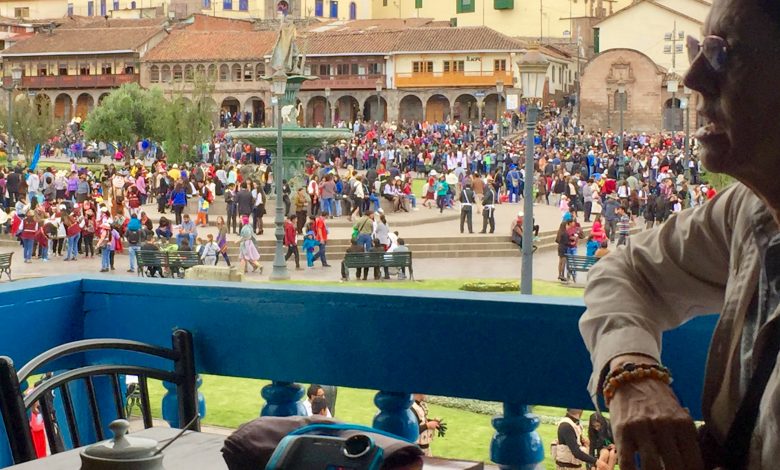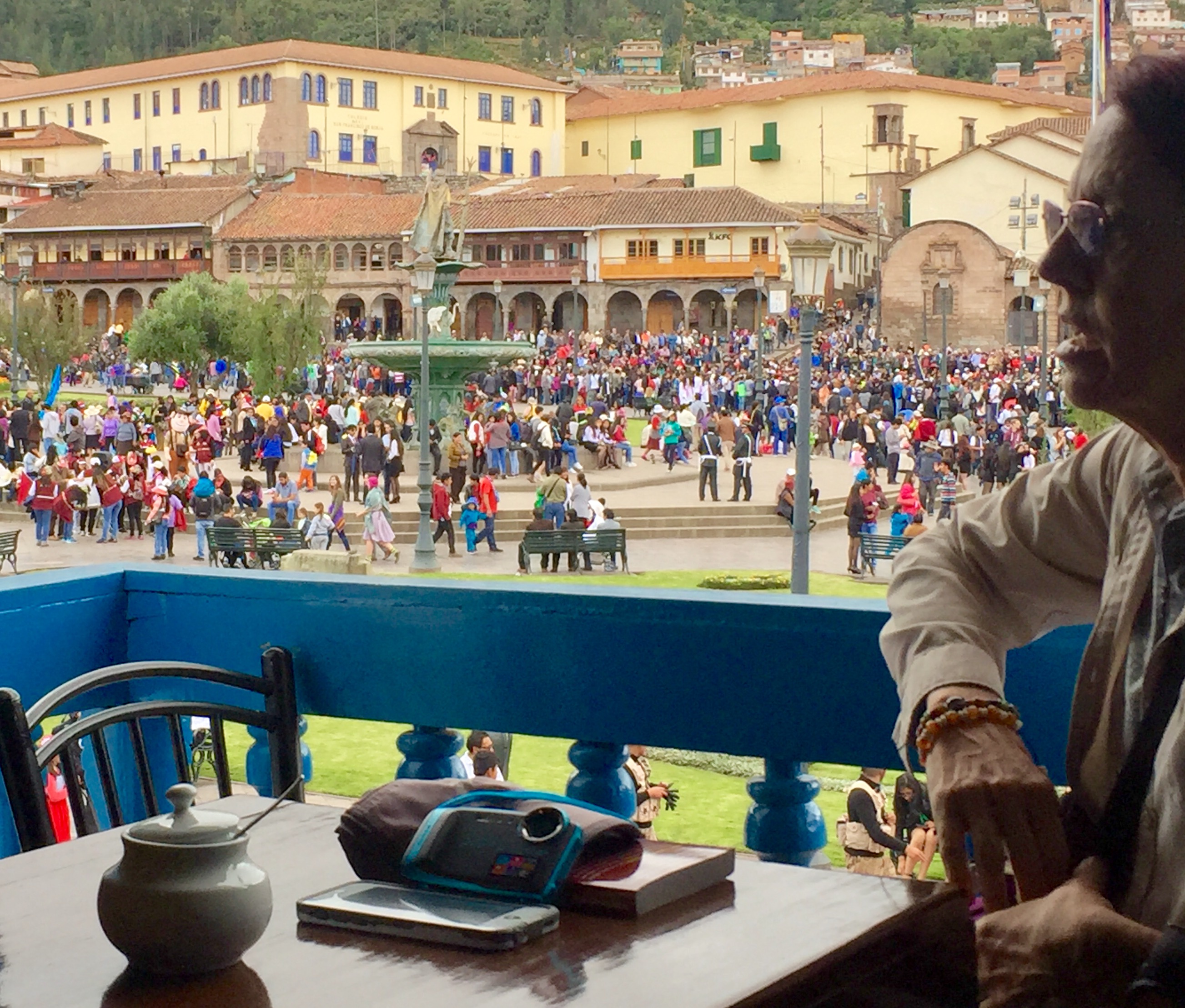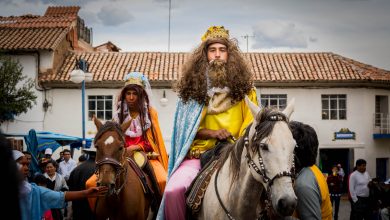The University, Schools, and a Sunday Ritual, No Matter What

“Excuse me. Do you know what all this is? What is going on?”
A woman with her hair gathered back, sitting in the balcony of the Cappuccino Cafe over the main plaza, turned and asked me.

Lots of noise filled the café from the loudspeaker on the Cathedral’s stairs and, in the background, you could hear bits and pieces of marching bands and the sounds of people.
I could barely hear her. The noise was so strong and loud. It almost wrested other hearing away. The loudspeaker announced that the parade filling the Plaza is the anniversary march of the Universidad Andina and told us that it is the first university with international accreditation, as well as much more from the University’s mission and marketing packets.
Before them, public and private schools marched around the plaza in celebration of their anniversary as well.

This parade in which the whole university is present strikes me because it is not something we do at home in my university though it just finished its 75th anniversary. Yet in Cusco such parades are very important. The entire university will parade again during the celebration of the Region and City’s anniversary, now along with all the other institutions of Cusco’s civil society.

I do not know the history of these parades, and could not tell the woman anything about them. I only know they are important here—I am told they do not take place in other parts of Peru. Participation is obligatory for the University’s staff and professors.
The parade is a formal presentation of the University (and the schools) to Cusco’s society and to itself. I say the latter because the plaza does not fill with people from the city to watch the parade. Nevertheless, by means of this physical act of being present and marching, the University shows itself to itself as an important part of the city, in that it can claim the plaza on this day as its own, and it establishes its organigram as a physical reality when people march in their appropriate groups, while their heads are announced by name and title.
We never do this, except for at graduation time and, then, it is just for our university, not for the whole society.
As a result, this parade strikes me as significant for the University’s social, ritual, and intellectual life.
Of course, I did not tell all this to the woman. I just told her that it was the Andean University of Cusco on its anniversary. And, that this kind of parade is important in Cusco
I was writing and the clouds came together and dropped a heavy shower of rain just as the Medical program marched by the reviewing stand. The announcer said “Andeans do not fear adversity. They do not fear rain… This rain is not a problem. It is the Andean heart and fills us with emotion,”
The woman finished her breakfast and left, though the march continued and a stronger rain let loose.
Another point struck me.
One of the words commonly used in Cusco to describe fiestas, festivals, or celebrations is algarabía. I find that word very difficult to translate fully in its meanings here in Cusco. According to the dictionary of the Royal Spanish Academy, the word is Arabic in its origins and refers to language. The Spanish is about a language that is noisy and unintelligible, It is also the sound of many people speaking at the same time. Hence in English it is usually glossed as hubbub.

The very loud sound of this parade is meant to be understood. since this is when slogans from mission statements and the official feelings of the charisma and power of the University’s leaders become spoken and present. These spoken marketing and mission statements are like epithets in that in the context of the algarabía they are expected to enact the reality they speak.
The noise itself, the front, formal sound of the announcers, and the back sound of bands and people support and prop up the epithets.
While the Royal Academy gives a negative cast to the word algarabía, In Cusco it is a positive word that characterizes celebration and cannot escape an overarching meaning of joy and happiness, while it is also a sonorous model of society.
The rain is strong. The University continues to march though everyone watching who could fled to the arches under which it is dry. Those obliged to march, continue, and in that is the symbolic meaning and power of an institution. Afterwards people will complain and say they caught a cold. Nevertheless, the power of the University will have installed in in its claim over their bodies to march, even in inclement weather.





